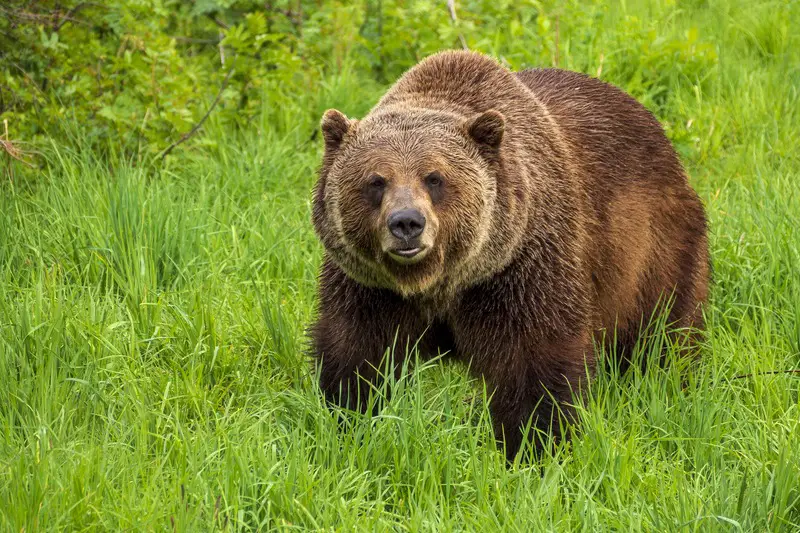On Monday, September 23, 2024, a brown bear attacked a remote village in Russia’s Primorsky region, leaving two men dead and causing the deaths of dozens of stray dogs.
The bear intruded into the residence of an 87-year-old man and his 56-year-old son, following the brutal killing of 35 stray dogs sheltered nearby. This horrifying incident resulted in the death of both men, prompting a swift reaction from local authorities.
The attack happened in the village of Luchegorsk, located near Russia’s southeastern border and notable for its closeness to the wilderness. In the days prior to the fatal attack, the bear, suspected to be afflicted with rabies or a debilitating injury, exhibited progressively aggressive behavior. Bear expert Sergey Aramilev commented, “A healthy bear would definitely not do this. It would not even come close to a populated area.” These irregular behaviors, coupled with the bear’s evident malnourishment, suggested a significant ailment within the animal.
The bear’s onslaught started when it overcame the weak wooden fence at a nearby shelter where the stray dogs were confined to their kennels. Shelter director Olga Zamyshlyaeva described the aftermath: “The bear came in at night, and 35 dogs died. We don’t have security here. The dogs are kept in kennels.” The shelter, situated in a forested region, lacked adequate defenses against such an attack.
After assaulting the dogs, the bear forced its way into the home of the father and son, who were unable to fend off the powerful beast. Their bodies were later discovered with clear signs of severe mauling. Hunting inspectors and local law enforcement quickly intervened, cordoning off the area and imposing a curfew to safeguard other residents from subsequent attacks.
Following a brief search, the bear was located and killed by the inspectors. Authorities speculated that the animal’s condition had driven it into a desperate and dangerous state.
Bear attacks, particularly in Russia’s more isolated and bear-populated regions like Siberia and the Pacific Coast, pose a significant threat. Russia is the host to about half of the world’s brown bear population, and encounters between humans and bears have been reported for decades. From 1932 to 2017, more than 338 incidents of bear attacks on humans were documented, with serious injuries and deaths happening across the country.
The majority of these incidents occur in areas where people gather wild resources or engage in hiking activities, often in the late summer and fall seasons when bears are hyperphagic, amassing fat for hibernation. Single bears, as opposed to females with cubs, are often the culprits behind fatal attacks. While some bears may be conditioned to human food, most predatory attacks occur without indications of habituation to human food sources.











